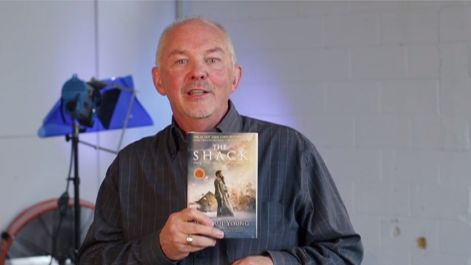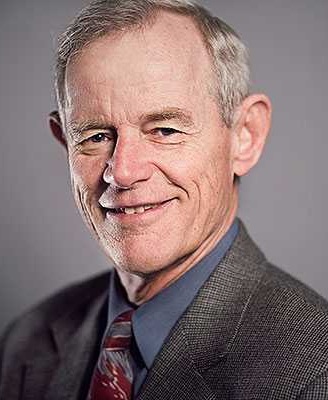‘The Shack’ Author Claims Unsaved Can Still Be Reconciled to God After Death: ‘I Don’t Think Death Is Our Damnation’

William P. Young, the author of the best-selling novel “The Shack,” which was made into a major motion picture and decried by some as containing blasphemous and false doctrine, outlined in a recent interview that he believes people are still given chances to receive Christ’s sacrifice after death, remarking, “I don’t think the story is over just because you die.” An acquaintance of Young’s, who has long expressed concern about the popular author, says that he is saddened that some are so willing to accept such false teaching from Young.
Eternity News published an article about Young on Wednesday, sharing content of an interview that it conducted with the writer as it discussed his part in the new documentary “The Heart of Man,” as well as his beliefs about what the consequences are in this life and upon death if the prodigal son does not return to the Father.
“You’re putting a ‘[if you] don’t return’ as if death is the final arbiter,” Young replied.
Young, who also published a controversial book last year entitled “Lies We Believe About God,” said that he holds a different view than most, as he believes that when the Scriptures state that “neither death nor life … shall be able to separate us from the love of God,” it means all men, and not just Christians.
“[E]very time the New Testament talks about the issue of judgment, it talks about krisis—the Greek word for judgment—and it’s a crisis. You’re going to enter a crisis, and I don’t think the story is over; I don’t think death is our damnation,” Young claimed.
He stated that while he believes Jesus is both savior and judge, and that men receive the ramifications of their choices, they can still potentially change their mind as God continues to pursue them.
“I think that Jesus is both our salvation and rightful judge, but that judgment is intended for our good, not our harm,” Young said. “So, what does it mean? Well, you get to experience the losses of your choices, and that’s no fun. I mean it’s devastating.”
When asked if he meant only in this life or for eternity, he said that it depends on whether the person continues to hold to their choice after death.
“[The consequences are] potentially for eternity, if you keep holding on to it. But I don’t think the story is over just because you die,” Young stated. “I think there is an ongoing relational confrontation between the One who knows you best and loves you best. Potentially forever and, potentially, you could say ‘no’ forever. How someone could do that I don’t know, but definitely that tension is held in Scripture for sure.”

However, James B. DeYoung, author of “Burning Down the Shack: How the ‘Christian’ Bestseller is Deceiving Millions” and an acquaintance of Young, told Christian News Network that he has long known that Young espoused this belief and tried to warn Christians about it when “The Shack” novel and movie craze were taking place.
“He strongly asserted it first in a paper he delivered in 2004 to a Christian think tank that he and I started in 1997. Then, last year in his non-fiction book, ‘Lies We Believe about God’ (2017) he devoted a whole chapter (#21) to assert that death is not more powerful than God, that God can reach people after death and bring them to Himself,” DeYoung explained. “He rejects [the] evangelical belief that asserts that death is final.”
“Interestingly, most people don’t realize that the corollary to this teaching is the belief that Hell will eventually be emptied—that everyone there, including the devil and fallen angels, will repent. [That] the fires of Hell are corrective and restorative, and all will go out and enter Heaven,” he warned.
DeYoung said that this belief is not supported by Scripture, which teaches that judgment is final and none can cross from Hell into Heaven.
“Hebrews 9:27 [notes] this limited course of events: ‘It is appointed for people once to die, and after this comes judgment.’ Again, in Jesus’ parable of the rich man and Lazarus (Luke 16), the major declaration is that the separate location of the wicked and the righteous is unchangeable and fixed,” he outlined.
“Further, Jesus, at the end of his parable of the sheep and the goats (Matthew 25), speaks of ‘eternal torment’ for the wicked, and ‘eternal life’ for the righteous. These words assume clearly that destinies are fixed (since they are ‘eternal’),” DeYoung continued. “Finally, the rest of Jesus’ teaching about the afterlife assumes a fixed destiny; there is not even a hint that a destiny either way can be altered after death.”
DeYoung has written three books to counter Young’s teachings, including the aforementioned “Burning Down the Shack,” as well as “Lies Paul Young Believes About God” and “Exposing Universalism,” which also cites the beliefs of Brian McLaren and Rob Bell.
“For fourteen years I have been asserting that Paul Young advocates universal reconciliation (also known as universal salvation) in all his novels, including ‘Crossroads’ [2010] and ‘Eve’ [2015]) and the movie ‘The Shack.’ My views were generally rejected. Now the ‘genie is out of the bottle,’” he said.
DeYoung further noted that in Young’s “Lies We Believe About God” book, the 28 so-called lies cited include the beliefs that “sin separates people from God,” “you need to get saved,” “God is in control” and “the cross was God’s idea.”
“In light of his non-fiction book, I’m surprised that people are so uninformed regarding his stated beliefs; and I’m saddened that so many find no fault with them—beliefs that the Christian Church has labeled for almost two thousand years as heresy,” he lamented.
Become a Christian News Network Supporter…
 Dear Reader, has ChristianNews.net been of benefit and a blessing to you? For many years now, the Lord has seen fit to use this small news outlet as a strong influential resource in keeping Christians informed on current events from a Biblical worldview. Despite Facebook’s recent algorithm changes, which has limited our readership, and, as a result, has affected operational revenue, we continue to strive to bring you the news without compromise and to keep Christ in focus. If you have benefited from our news coverage, would you please prayerfully consider becoming a Christian News supporter by clicking here to make a one-time or monthly donation to help keep the truth widely and freely published and distributed? May Christ continue to be exalted through this work!
Dear Reader, has ChristianNews.net been of benefit and a blessing to you? For many years now, the Lord has seen fit to use this small news outlet as a strong influential resource in keeping Christians informed on current events from a Biblical worldview. Despite Facebook’s recent algorithm changes, which has limited our readership, and, as a result, has affected operational revenue, we continue to strive to bring you the news without compromise and to keep Christ in focus. If you have benefited from our news coverage, would you please prayerfully consider becoming a Christian News supporter by clicking here to make a one-time or monthly donation to help keep the truth widely and freely published and distributed? May Christ continue to be exalted through this work!





Comments are closed.